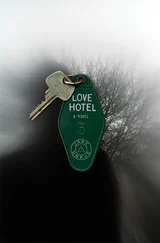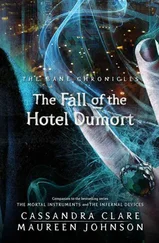The movie’s a “portmanteau” piece: a suitcaseful of stories, interrelated but distinct. And they are stories of disconnected people. None of the people in Grand Hotel are married, or, if they are, their wives, their husbands are absent, or they are escaping them, just like in the German Pension. Perhaps there are no stories to tell about marriage, or they are too difficult to tell. Family is a private matter, kept at home behind closed doors like a case of syphilis, a case of hysteria. Disconnection is a hotel tragedy, but also its opportunity. None of the guests understands anyone else’s troubles: There are frequent mistakes — of identity, of meaning — that allow stories to happen, but they are stories like jokes: they deflect. Where there is no privacy, there is no possibility of connection.
Something about the entire movie fails to connect: so many stars, all playing a different style and genre. It’s funny because it’s a Hollywood film set in Berlin, but filmed on a California sound stage barely into the sound era. All the actors are speaking English, but some with fake (or real) European accents. Garbo plays a Swedish-accented Russian; Beery, playing a German, talks to Crawford, also playing a German, but his voice is mitteleuropa, whereas hers is pure USA. And all the performances are different. Lionel Barrymore’s a ham, but then he’s playing one — a stage drunk, his silent-movie gestures too large for the screen — it’s impossible to draw a line between the performance and the part. Joan Crawford, who was never a silent star like Garbo, is subtle, physically contained, wordy. John Barrymore (the Baron) is a blank-faced matinee idol, but Wallace Beery (Preysling) is understated, naturalistic, though he’s playing a bumptious bore. Garbo, playing dancer Grusinskya, doesn’t look much like a ballerina and she’s never seen dancing, but it doesn’t matter a bit. On stage, we’re told, she’s a “natural,” but she can only wow the audience when inspired by the “real thing”: love. She’s unaware that, offstage, she’s pure performance.
GRUSINSKAYA
I can’t dance tonight.
But she does. She always does.
“You’re entirely different from what I expected,” says Presyling when he finds Flaemmchen’s performance as a sex object is just as formal as her performance as a typist. Flaemmchen, the ambiguous stenographer who also poses for “art studies,” is the butt of the film’s sexual jokes and double meanings. She’s constantly mistaken for a prostitute, and no wonder: she’s always telling us what she’s worth (“I got ten Marks for it,” she says of her magazine centerfold). From the same social class as Kringelein, they are both earners of “little pennies.” Everyone needs so many of these pennies to pay the hotel bill but, while they gain it, they must pretend not to be working. The leisure industry’s a factory floor. What does a hotel cost per minute? When you get the bill it’s the extras that bring you down. Sometimes it’s breakfast; sometimes it’s the WiFi. Sometimes it’s things you don’t even know you’re enjoying.
KRINGELEIN
(On the lobby telephone)
Every minute costs 2 marks 90. I want to explain, but I must do so quickly, it costs so much.
Does Flaemmchen enjoy her typist day job? It seems not. Does she even enjoy the perks of her “hotel” job that come from closer acquaintance with her employers? Not as much as we might have hoped. But she has to look as if she does, in order to procure them — service and a smile: that’s the hotel industry. Flaemmchen’s ambiguity, which insists that any pretty girl can be bought for a night like a suite, is at the heart of the hotel’s glamour, even if it refuses to acknowledge she’s on the unofficial payroll. Like all the characters, she has to pretend not to be what she is not, but to be what she is.
Only Flaemchenn, who understands this play of surfaces better than most, can convert them into an act of generosity. “Dance with old Kringelein,” says the Baron. And she does, smiling, though the Baron knows she really wants to dance with him. What cruelty! How easily he acknowledges her hotel role. And Flaemmchen from that moment, recognizes herself as she is seen, just as Freud does in the mirror in the train bathroom. Accepting herself at face value, her hotel value (as Freud, outside his consulting room, appeared to himself as merely an old man), she goes upstairs to take up Preysling’s offer of a trip to glamorous Manchester. At that instant she becomes like hotel staff — doomed to hanging around in corridors, in lobbies — but her position remains ambiguous; she’s still not servant class
“Who are you really?” Garbo asks Baron Barrymore. No need to ask; we already know. Grand Hotel is a big-name picture, each actor performing what she, or he, does best. “There’s no ‘real thing,’” insists Crawford/Flaemmchen, only half joking, when Baron Barrymore rejects her for Garbo. Or so she must pretend, as her life (or her living) depends on it.
“I’m going to live!” boasts dying Kringelein, unaware that at the Grand Hotel, living is the last thing he’ll do. Living at a hotel is hard work. Leisure, which is not the opposite but the corresponding state to work, is a tough job, and no movie mentions work so much. Clerk Kringelein knows the price of everything, and isn’t afraid to point it out. This goes with a kind of naive impropriety. When he asks Flaemmchen, “Would you like to see my bathroom?” he is not being indecent; he’s merely impressed by its size, and style.
Everyone is a workaholic nowadays, even when they’re on holiday. Something’s got to give.
I have never lived in a hotel. It has always been work.
II
One cannot now live in a hotel — the economics are impossible. Once upon a time people did, though seldom in hotels like the Grand Hotel . They were women mostly, women without men: Katherine Mansfield’s heroines, and also her villains, their husbands elsewhere, for her villains were often married. Those were hotels for single women, in single rooms, for maids, and old maids, like Charlotte Bartlett in E. M. Forster’s A Room with a View (she scarcely exists in the novel out of them). Hotels were the only place these women were served, had anyone to serve them. They were the only place they existed in public.
Nowadays hotels are for couples, a brief escape from their family selves, and, for single people, mostly only if they are on business, though they will be charged for the empty half of their double beds (perhaps some are paying for the opportunity to fill that space). Hotels are also the places couples look most uncomfortable. They go to hotels to discover their differences. They are altered, in this public space where, suddenly, they must both perform their value, and they sometimes discover that one of them has more value, though the woman must always wear her value on her sleeve. The man’s value is more often hidden, but may be guessed at, partly by looking at the woman he is with.
Sometimes you went to hotels for business. The hotels you went to were called business hotels, though you only spent your leisure time in them, and did your business elsewhere. The hotels I went to for work were called hotels for leisure. As a hotel reviewer, I sometimes took you to leisure hotels, but the fit was never right. What sort of marriage were we performing there?
In leisure hotels, you had to perform being a man, being part of a couple. As you didn’t enjoy this performance, hotel visits were seldom enjoyable, on my face across the table that expression I saw mirrored in yours, like chewing something you can’t get out of your teeth: a nothing-to-be-done face.
“How are you?” I said. You said:
“Sad, as I always am in transition.”
Читать дальше












